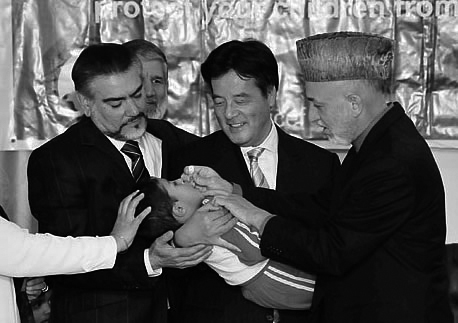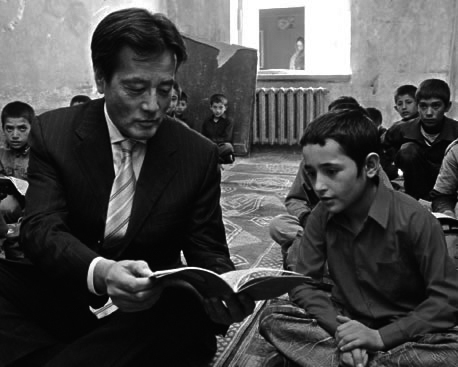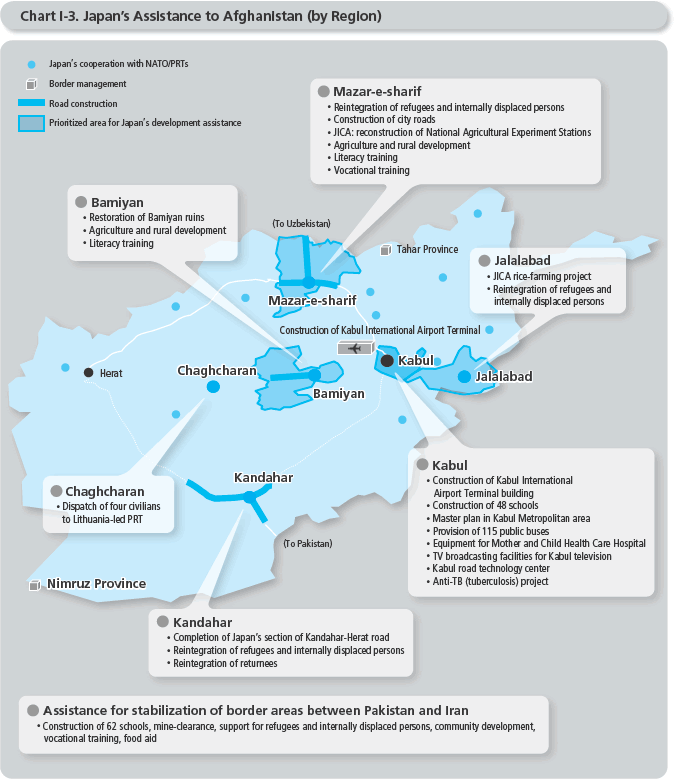Japan's Official Development Assistance White Paper 2009
2. Japan's assistance to Afghanistan
Based on the belief that the realization of stability and prosperity of Afghanistan will lead to the peace and stability of the whole world, Japan has consistently extended assistance with the firm resolve not to let Afghanistan become a "hotbed of terrorism and illegal drugs." In 2002, Japan hosted the International Conference on Reconstruction Assistance to Afghanistan (Tokyo Conference). The conference secured commitments of more than US$4.5 billion from the international community, and Japan pledged to provide assistance of up to US$500 million. In November 2009, Japan newly unveiled the New Strategy to Counter the Threat of Terrorism, based on which Japan would provide assistance of approximately 80 billion yen urgently needed in Afghanistan. Shifting up from the existing pledge of a total of approximately US$2 billion, Japan will provide assistance up to an amount in the region of US$5 billion in about five years from 2009, based on the future situation in Afghanistan. Specifically, assistance will be provided focusing on the following pillars: support for enhancing Afghanistan's capability to maintain security such as police; support for the reintegration of former Taliban foot soldiers into society such as the implementation of vocational training and creation of employment opportunities; and assistance for the sustainable and self-reliant development of Afghanistan in such areas as education, health and other basic human needs. Japan also attaches importance to support for regional development to promote the stability and prosperity of the entire region comprised of Afghanistan and its neighboring countries, considering that development should be implemented in partnership with Pakistan and neighboring countries in Central Asia. Japan's support for the political process and governance aims at restoring the basic systems that form the framework of the country. For example, Japan contributed approximately US$300 million to support the preparations for the presidential election in August 2009.
The total amount of assistance provided by Japan to Afghanistan from October 2001 until the end of 2009 was approximately US$1.8 billion. Support for improving security was a part of this, and even after the disarmament, demobilization and reintegration (DDR) of former soldiers of national force was completed in June 2006, Japan has continued to play a leading role in the disbandment of illegal armed groups (DIAG). Furthermore, Japan provides assistance for the restoration of security which is essential to the consolidation of peace, including assistance to police and demining measures. In FY2008, Japan provided an amount equivalent to the salaries of six months of the entire Afghan police, which consists of approximately 80,000 personnel, among others.(Note 5)
In addition, Japan has made significant contributions in a variety of sectors, including support for the development of infrastructure, such as the construction of the Kabul International Airport Terminal building and the Kandahar-Herat road. In education sector, Japan supported the construction and repair of more than 550 schools and the training of 10,000 teachers. In health sector, Japan's support led to the provision of vaccines to a total of 40 million people and the construction of 50 clinics. Furthermore, Japan is implementing approximately 2,000 community-rooted projects across the country to support rice farming and rural development.
Afghanistan has gone from a stage of emergency humanitarian assistance to a stage of recovery and reconstruction assistance, and it is now gradually shifting to a stage of full-scale development assistance. At present, with the support of the international community, the development of Afghanistan is steadily being carried out based on the Afghanistan National Development Strategy (ANDS).
Furthermore, with a view to expanding assistance to the rural areas of Afghanistan, Japan has established a framework of Japanese Grant Assistance for Grass-Roots Human Security Projects to be provided to NGOs and others engaged in activities in the areas of primary education, vocational training, health and medical care, and sanitation, in partnership with Provincial Reconstruction Teams (PRTs) (Note 6). As of October 2009, 58 projects in partnership with 12 PRTs have been implemented. In May 2009, Japan dispatched Japanese civilians for the first time to PRT Chaghcharan (Lithuanian-led) in Ghor Province. The civilians are carrying out a detailed study of the region's reconstruction needs, among other activities. Through these efforts, Japan is reinforcing its assistance to the rural areas of Afghanistan.
The security situation of Afghanistan remains severe, as a Japanese national who worked for a Japanese NGO was killed in August 2008. In spite of such situation, Japan is carrying out a number of assistance efforts in order to fulfill a vital role in the international community, while at the same time giving maximum attention to ensuring the safety of aid workers.
Notes:
(5) The number of personnel as of that date.
(6) PRTs are units consisting of military and civilian reconstruction assistance personnel of NATO. PRTs are promoting simultaneously the improvement of security and reconstruction assistance in areas throughout Afghanistan. In so doing, they increase the effectiveness of reconstruction and development assistance and help expand the reach of the Afghan Government into the rural areas.

Foreign Minister Katsuya Okada attending a polio vaccine inoculation campaign with President Hamid Karzai

Foreign Minister Katsuya Okada visiting a school (Photo: Jiji Press)

